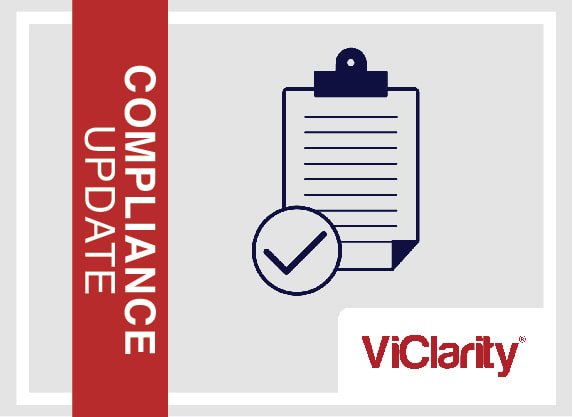|
The Dakota Credit Union Association’s dues-supported compliance solution – ViClarity – is a world leader in credit union compliance. To read the complete articles/answers that are linked, you will need to log in with your username and password. If you have questions about establishing your members-only account with ViClarity, click here for detailed instructions or contact John Alexander in the DakCU office.
Q: What are regulatory requirements when the credit union reports a member to ChexSystems for monies owed? A: Section 623(a)(7) of the Fair Credit Reporting Act (FCRA) requires that financial institutions provide notice, in writing, that outlines the furnishing of the negative information. Regulation V, which implements the act, has model forms the credit union can use to furnish such information. Q: If the credit union is using the average daily balance to calculate dividends, does it also need to use the average daily balance to determine minimum balance required to earn dividends? A: Yes, a credit union shall use the same method to determine any minimum balance required to earn dividends as it uses to determine the balance on which dividends are calculated. Q: What residential address should be reported if a reporting company is required to report an individual's residential address, but that individual does not have a permanent residential residence? A: The residential address that is current at the time of filing should be reported to FinCEN. An updated report should be submitted within 30 calendar days if the address, or any other information previously reported, changes. Q: At what level should policy and procedures for handling garnishments and subpoenas be approved? A: Ideally, the policy and the procedures will be two separate documents. Policy is generally approved at the board or senior management level and is a broader statement of institutional direction and goals. Procedures, on the other hand, are often quite detailed and specific, focused on the day-to-day implementation of the policy. Read more on these Q & As here. FinCEN Issues Letter Clarifying CDD and CIP Requirements The Financial Crimes Enforcement Network (FinCEN) has released a letter in response to a request for clarification on whether the Customer Identification Program (CIP) rules and the Customer Due Diligence (CDD) requirements have to be met for designated beneficiaries of Individual Retirement Accounts (IRAs). According to the letter, a nonprofit foundation was a named beneficiary of an IRA which was maintained at a broker-dealer. In order to receive the funds, the broker-dealer was requiring the foundation to open a new IRA and submit information required by CIP and CDD rules, which included personal information about the foundation’s board of directors and senior members. The letter submitted by the foundation to FinCEN centered around the question of whether the broker-dealer must comply with identity verification requirements for CIP and CDD procedures when distributing to a beneficiary of an IRA funds inherited as part of a charitable estate. FinCEN has published their answer to this letter, stating as long as the broker-dealer requires the foundation to open a new IRA to receive the funds, the requirements for CIP and CDD are to be met. Read more here. NCUA Releases 2023 Annual Report The National Credit Union Administration (NCUA) released its 2023 Annual Report, which details the NCUA’s activities, policy initiatives, and accomplishments for the past year. In general, the report provides financial and high-level performance results for the NCUA and is intended to demonstrate to the President, Congress, and the public its commitment to its mission and accountability over it. The report also highlights significant initiatives that the NCUA completed in 2023. More information and report available here. CFPB Warning Against Misleading Marketing Practices in Remittance Transfers The Consumer Financial Protection Bureau (CFPB) is warning remittance transfer providers against falsely advertising the cost or speed of sending remittance transfers as it is a violation of the law. In a circular issued on March 27, the CFPB detailed how many marketing practices related to sending international money transfers may violate the CFPB’s prohibition on deceptive acts or practices. In addition to the speed and costs of remittance transfers, the CFPB has warned against including “junk fees” in international money transfers. In the words of CFPB Director Rohit Chopra, “Consumers should not be paying junk fees on international money transfers that are advertised as free. The CFPB will continue to work with law enforcement to ensure companies don't illegally burden families with fees or inflated exchange rates using false or misleading claims.” Full article available here. Visa and MasterCard Reach $30 Billion Settlement Over Interchange Fees Visa and Mastercard recently came to a $30 billion settlement with merchants. The settlement ends a nearly two-decade antitrust legal battle, centering around interchange fee rates. While both parties have signed the settlement agreement, it has yet to be approved by the court. The terms of the settlement are to be drawn out over the course of five years. While the agreement between the parties includes many different terms, MasterCard published the three main provisions of the settlement, which you can find here. Speculation exists that the news of the settlement between the two credit card companies will alleviate some of the legislative and regulatory pressure. The settlement still needs to be approved by the Federal District Court in the Eastern District of New York and isn’t expected to be implemented until later this year or possibly early 2025. Comments are closed.
|
The MemoThe Memo is DakCU's newsletter that keeps Want the Memo delivered straight to your inbox?
Archives
May 2024
Categories
All
|
|
Copyright Dakota Credit Union Association. All Rights Reserved.
2005 N Kavaney Dr - Suite 201 | Bismarck, North Dakota 58501 Phone: 800-279-6328 | info@dakcu.org | sitemap | privacy policy |






